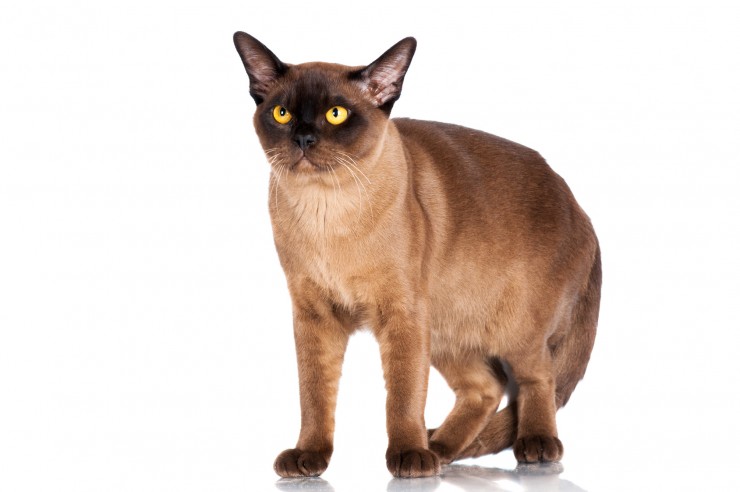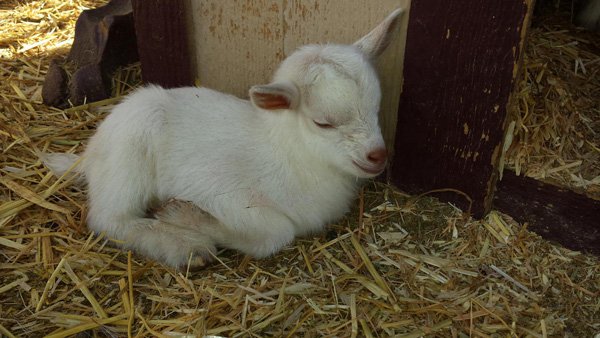

For decades the Burmese cat has been among the most popular breeds to have as a family pet or companion which is hardly surprising because they have a lot to boast about. Not only are they beautiful looking, but they are known to be affectionate and incredibly sociable by nature, loving nothing more than spending time with the people they love.
These sleek looking felines like many other pedigree cats are known to suffer from a few health issues some of which are hereditary whereas other are acquired conditions they could develop during the course of their lives. With this said, many Burmese cats live out their lives without ever suffering any health issues whatsoever, but it's always worth knowing about any disorders the breed is known to suffer from. Like this you would be more likely to recognise any symptoms early enough for a vet to treat a health disorder more easily which naturally means a cat would be made to feel more comfortable sooner rather than later too.
Cherry Eye is one of the conditions that seems to affect Burmese cats more than other breeds and it's a painful disorder that needs veterinary treatment straight away. A vet would need to rectify the problem by either taking out part of the gland that's causing the problem or to tack the part that's become detached back to where it should be. When a Burmese cat develops Cherry Eye, it's really important to keep the area around their eyes nice and clean to reduce the chances of a secondary infection setting in. A vet would prescribe eye drops or some other form of eye wash that would help keep eyes clean before recommending the best way to rectify the problem.
Burmese cats are also more predisposed to suffering from Cleft Palates which in short is a congenital defect found in their oral and nasal cavities very much like a harelip in people. This trait happens when the bone doesn't develop and fuse as it should leaving a gap which makes it virtually impossible for Burmese kittens to nurse when they are born with the condition. The only way for them to survive is by feeding a kitten by tube until a vet could correct the problem surgically. The good news is the success rate is very positive and kittens born with cleft palates go on to lead happy and full lives.
This is another condition that's all too often seen in the breed. Hypokalemia is a disorder that affects a cat's blood and where potassium levels are too low which means electrical messages that need to be sent to nerves, muscles and the brain cannot be sent as they should. The good news is that the condition can be treated by offering oral supplements to Burmese cats that have been diagnosed with Hypokalemia.
Another condition that affects the breed and which is a hereditary disorder is called Burmese Head Defect. Kittens born with condition have seriously malformed heads, but should only one copy of the gene mutation be present, a kitten may just be born with a shorter nose whereas if two gene mutations are present, the defect is a lot more serious and kittens are put to sleep to prevent any unnecessary suffering. Fortunately, this nasty disorder is far less commonly seen here in the UK whereas in the States it is much more frequently reported.
This fatal disease is a neurological storage disorder and it's a condition that can be seen in kittens. They display slight tremours and their coordination is not as it should be. The signs of there being something wrong typically occurs when affected kittens are around 6 to 8 weeks old. It is an autosomal recessive disease which in short means that 2 copies of the mutated gene have to be present for the disease to take hold.
Burmese Cats can be DNA tested for three health issues which are as follows:
If you are thinking about sharing your home with a Burmese kitten, it's really important to contact reputable breeders who routinely and regularly screen all their cats for any hereditary and congenital health disorders. It's also very important to meet the parent cats of any kitten you might be thinking of buying and to see their papers to make sure they come from a good line of pedigree cats, which is especially true if you opt to buy a kitten from a private breeder.
Knowing about a condition means you would be more aware if any symptoms manifest themselves and the early a disorder is successfully diagnosed and treated, the more comfortable a cat would be and as a rule of thumb the better the prognosis tends to be.
 Heart Murmurs In Dogs Explained
Heart Murmurs In
Heart Murmurs In Dogs Explained
Heart Murmurs In
 10 Tips For Feeding Bitches During Pregnancy & Lactation
10 Tips For Feedi
10 Tips For Feeding Bitches During Pregnancy & Lactation
10 Tips For Feedi
 Fox Terrier Hereditary Health And Genetic Diversity
Fox Terrier Hered
Fox Terrier Hereditary Health And Genetic Diversity
Fox Terrier Hered
 The Best Equipment for a Successful Dog Pig Hunt
The Best Equipment for a Successful Dog Pig Hunt
The Best Equipment for a Successful Dog Pig Hunt
The Best Equipment for a Successful Dog Pig Hunt
 Dog Daycare to Keep Your Dog in a Happy and Jolly State
Dog Daycare to Keep Your Dog in a Happy and Jolly State
Dog Daycare to Keep Your Dog in a Happy and Jolly State
Dog Daycare to Keep Your Dog in a Happy and Jolly State
Copyright © 2005-2016 Pet Information All Rights Reserved
Contact us: www162date@outlook.com